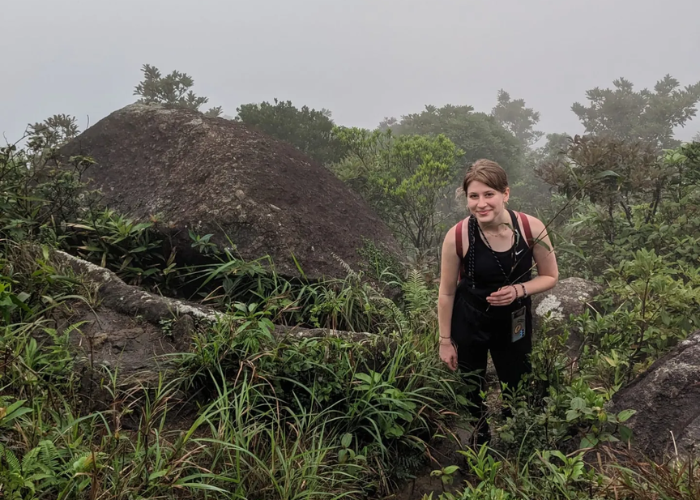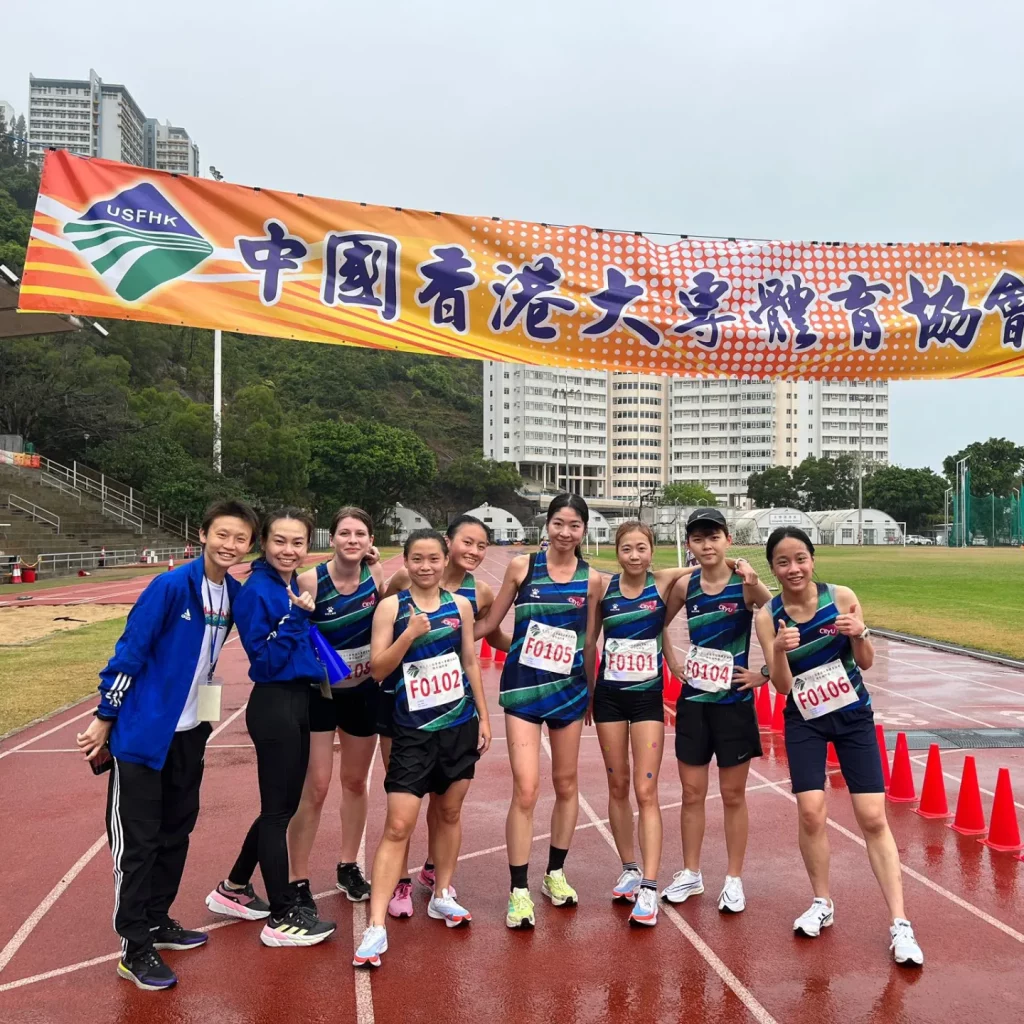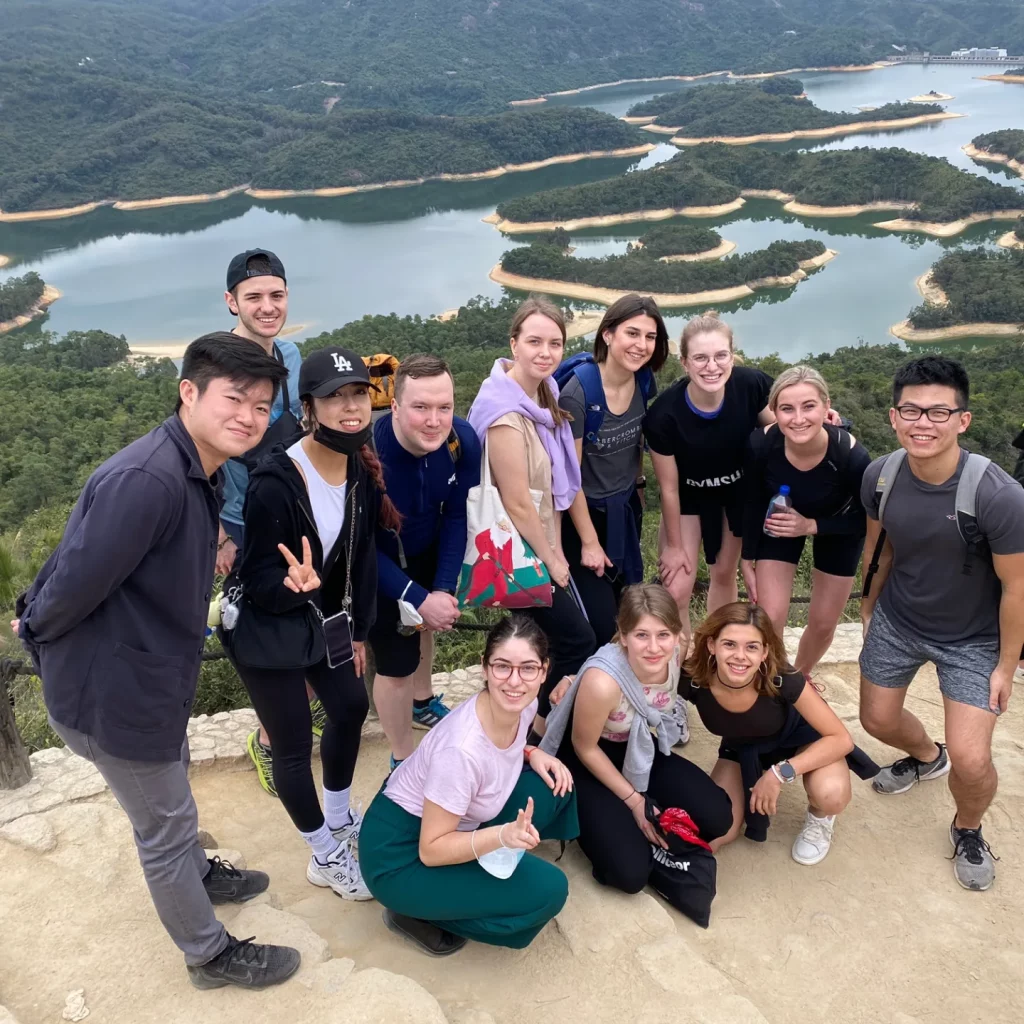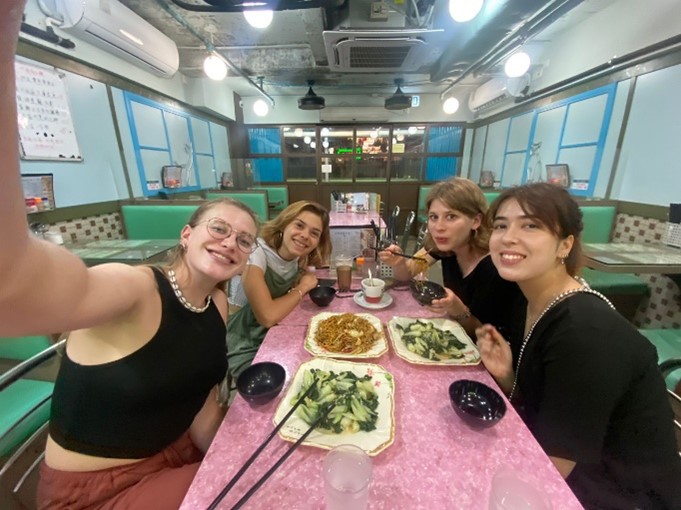


Can you tell us something about yourself? What do you study? Where did you spend your exchange stay?
Hi, I am Valentýna and I am a third year journalism student at the Faculty of Social Sciences. I am also very interested in Biology, which I plan to study for my masters. Other than that, I spend my free time travelling, playing curling, photographing, and playing the bass guitar. My passion for exploring exotic countries led me to apply and go on student exchange to Hong Kong, where I studied for one semester at the City University of Hong Kong.

Why did you choose such destination and this school?
My initial plan was to go on a Mandarin language programme in Taiwan through Huayu Enrichment Scholarship, but unfortunately, I did not make it out of the waitlist. Since I really wanted to gain the experience of studying and living abroad, I took on the opportunity to go on a student exchange through interfaculty agreements of Charles University. I decided to go to Hong Kong mainly because of its intriguing history and current political situation that I thought would be interesting to observe as a journalism student. As for choosing City University of Hong Kong specifically, I liked the courses that they offered there. They have very well-equipped facilities, for example a whole music studio, at the university and they organize events on weekly basis not only for local but also for its many international students.

What about the costs? Hong Kong is not cheap destination and unfortunately you were not awarded the scholarship of Mobility funding UK either.
Hong Kong is considered one of the most expensive cities to live, but I think as a student on an exchange you can get around on a budget. Accommodation makes up for the biggest expense, so if you manage to get a spot at the student residence (which both Baptist and City University can provide), the final cost is reduced by a lot. I was also lucky to be offered a scholarship by the university there to pay for the dormitory, otherwise since I was not awarded the Mobility funding of Charles University, I may have not been able to go. City University of Hong Kong is located in Kowloon, the cheaper part of the city, which also helps. As for food, if you give up fancy restaurants or bars (unfortunately also dairy products from supermarket are very pricy), and stick to canteens or home cooking, I think you can get to the same price you would pay in Czechia. Same applies for clothing – I was even able to buy several pieces half the price at local fashion markets. But, of course, for example for transportation and spendings on leisure activities, you should expect to be paying more. Generally, I think, even if granted the CU Mobility funding, it probably would not cover the whole cost of the exchange and plane tickets.

Tell us something regarding your first days. Any acclimatization problem – culture shock?
I was told by many friends, that the beginning may be a little bit difficult, and it is true from my experience as well. I do not think I got any culture shock, but I was extremely tired both physically and socially the first days, due to chaotic departure from Czechia, jet lag and arriving to the whirlwind of a middle of the orientation week. I would recommend coming before the start of the orientation, explore the city a little by yourself and prepare mentally for the excitement of meeting a lot of people at once.
During the first weeks it is normal to get a little bit lonely at times, since you have a lot of people around constantly, but not anyone really close yet. But gradually such bonds form and I think that some of the people I clicked with the most in my life were actually the people I met during my exchange.


Would you share with us your favourite memory/ experience?
One of my favourite memories would be from one day at the end of the exchange, when we went to a beach in a big group of people to get all of us together before we would part ways to go home or travelling around Asia. We stayed at the beach practically the whole day chatting and playing volleyball and when it got dark, me and my friend finally decided to go for a swim. Once we got into the sea and started moving, the water would spark in light blue colours around us, and I realised what we were seeing was the bioluminescence of the microorganisms inside. Soon, we got the rest of the group into the sea with us and together swam around and jumped into the water playing with the dazzling light of the plankton. Although, as one friend later realised, it might have been quite toxic to swim in it, they were very magical moments for all of us and a nice memory to end the student exchange with.
Would you recommend the destination to other students? Would you recommend this type of mobility?
I would definitely recommend going to Hong Kong for an exchange. Even though it seems like a small city, there is so much to do, and everything is quite easily accessible. What most people do not know is that there are many beautiful hikes, islands and beaches aside of the lively city. It is still very international place and so even with English or some very basic Mandarin or Cantonese, it is possible to get around. I would also recommend interfaculty agreements for mobility, but mainly for people that really want to go on an exchange outside of Europe and are willing to subsidize part of it financially as the CU Mobility funding may not be granted to all applicants and even if so it will not cover all the costs.
Has this study exchange experience influenced you anyhow? How can you benefit from it in future?
I have learnt a lot about myself and gained confidence in making a group of friends from scratch while still adjusting to living by myself far away from home. I found out I can adapt quickly and that I can manage getting used to a new study system and workflow too. I believe all these experiences are extremely valuable to me not only for future stays abroad like this one, but also in my life right now in a stage where I am learning to be fully independent.